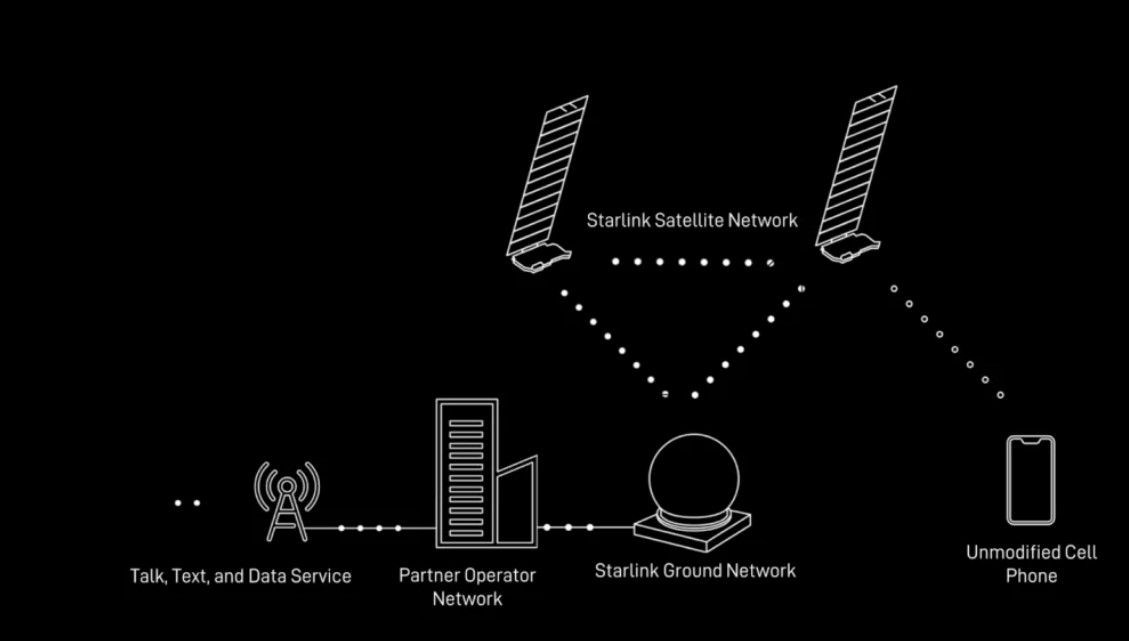
SpaceX is preparing for global testing of the Starlink cellular system
Elon Musk’s SpaceX has begun preparations for global testing of the Starlink satellite cellular communications system. According to PCMag, the company has submitted a request to the US Federal Communications Commission (FCC) for permission to test the system in a number of countries outside the US, including Australia, Canada, and Japan.
According to the documents, Starlink’s cellular technology trials are due to start outside the US on May 1 and will continue for 180 days. As part of the tests, SpaceX will directly provide Internet connections from satellites supporting Direct to Cell technology to ordinary smartphones.
In the United States, SpaceX plans to provide broadband services through AT&T’s network. In other countries, the company enters into cooperation agreements with local telecom operators to use their licensed radio frequency spectrum to provide Internet access to their customers. It has already signed agreements with seven operators, including Rogers in Canada, Optus in Australia, and KDDI in Japan.
In a document sent to the FCC, the company announced the possibility of expanding Starlink’s cellular testing to four other markets, including New Zealand, Chile, Peru, and Switzerland. But before that, it will need to obtain permission to conduct tests “from the relevant local administrations.”
“Testing will continue until SpaceX receives commercial authorization to provide additional coverage from space from the commission and the appropriate local government,” SpaceX said in the FCC filing.
Late last month, the company received FCC approval to expand Starlink’s cellular testing in the United States, including California, Washington, Texas and Hawaii. Over the next few months, SpaceX plans to launch up to 840 new Starlink satellites with Direct to Cell support.
It is possible that this year, after the FCC approval, the new Starlink service will be available to T-Mobile customers. Initially, the service will only support text messaging, and call support will probably appear next year.

